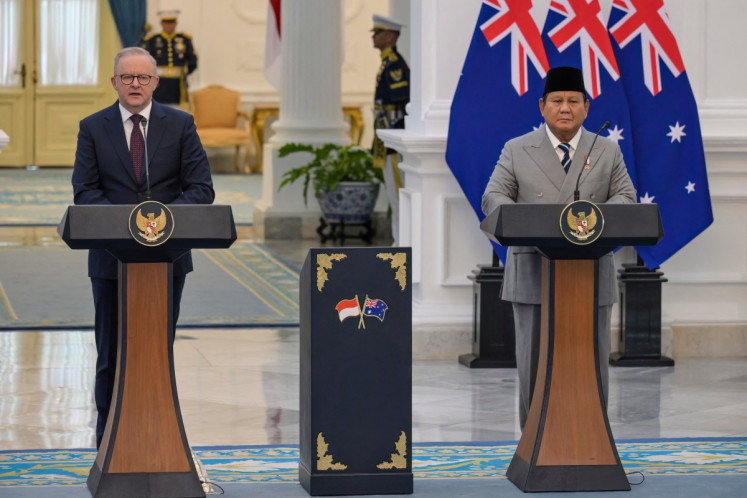Popular Reads
Top Results
Can't find what you're looking for?
View all search resultsPopular Reads
Top Results
Can't find what you're looking for?
View all search resultsScientists urge global AI 'red lines'
More than 200 prominent figures including 10 Nobel laureates and scientists working at AI giants Anthropic, Google DeepMind, Microsoft and OpenAI signed on to a letter released at the start of the latest session of the United Nations General Assembly.
Change text size
Gift Premium Articles
to Anyone
T
echnology veterans, politicians and Nobel Prize winners called on nations around the world Monday to quickly establish "red lines" too dangerous for artificial intelligence to cross.
More than 200 prominent figures including 10 Nobel laureates and scientists working at AI giants Anthropic, Google DeepMind, Microsoft and OpenAI signed on to a letter released at the start of the latest session of the United Nations General Assembly.
"AI holds immense potential to advance human wellbeing, yet its current trajectory presents unprecedented dangers," the letter read.
"Governments must act decisively before the window for meaningful intervention closes."
AI red lines would be internationally agreed bans on uses deemed too risky under any circumstances, according to creators of the letter.
Examples given included entrusting AI systems with command of nuclear arsenals or any kind of lethal autonomous weapons system.
Other red lines could be allowing AI to be used for mass surveillance, social scoring, cyberattacks, or impersonating people, according to those behind the campaign.
Those who signed the message urged governments to have AI red lines in place by the end of next year given the pace the technology is advancing.
"AI could soon far surpass human capabilities and escalate risks such as engineered pandemics, widespread disinformation, large-scale manipulation of individuals including children, national and international security concerns, mass unemployment, and systematic human rights violations," the letter read.
"Left unchecked, many experts, including those at the forefront of development, warn that it will become increasingly difficult to exert meaningful human control in the coming years."









